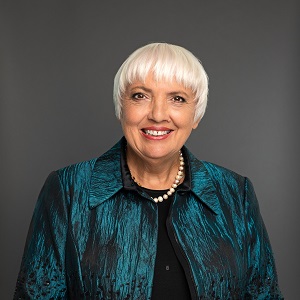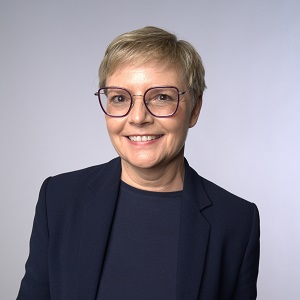Music and Dementia
As part of the federal initiative Music and Dementia, we call for more cultural and social participation for people with dementia.
The growing number of people affected by dementia is one of the great challenges for our society. Both in the context of their treatment, care, and support and with the aim of enabling them to participate as fully as possible in cultural and social life in order to enjoy a high quality of life, the manifold potentials of music must be used more resolutely and to a much greater extent than before. The demand for musical and artistic programs, pedagogical and geragogical musical activities, as well as music-therapeutic interventions, is far from being met in institutions of care for the elderly and in the home environment.
For this reason, the German Music Council (DMR), the German Music Therapy Society (DMtG), and the German Society for Music Geragogy (DGfMG) jointly launched the Federal Initiative Music and Dementia in September 2022 at the initiative of the Hamburg State Music Council. The aim of the initiative is to sustainably ensure needs-based music therapy, music geragogy, and arts and music programs for people with dementia throughout Germany.
Resolution "Music for a Better Quality of Life in Dementia"
On March 29, 2023, the resolution "Music for a Better Quality of Life in Dementia" was published by the Federal Initiative Music and Dementia. In it, political actors at all levels of government were urged to acknowledge and act on the following list of expectations and demands:
1.
Dementia patients must have access to qualified music programs everywhere in Germany, e.g. by being able to participate in a qualified music program at least once a week.
2.
In all districts and cities, there is a need for contact points (e.g. service points, regional networks) in which qualified professionals and volunteers initiate, establish, and promote music programs for dementia patients and their relatives, arrange for qualified personnel and volunteers for music programs, and organize or offer further education and training measures for caregivers and volunteers.
3.
The Federal Ministries of Health (BMG), of Family Affairs, Senior Citizens, Women and Youth (BMFSFJ), of Education and Research (BMBF), and the Federal Commissioner for Culture and Media (BKM) are requested to set up an inter-ministerial working group to develop a concept for necessary standards and structures, with the significant participation of the Federal Initiative Music and Dementia.
4.
This concept is to be developed by 2024, embedded in the National Dementia Strategy, and anchored in the 2025 federal budget.
5.
The Ministries BMG, BMFSFJ, and BKM are called upon to work together to ensure needs-based funding for sustainable structures and suitable projects.
6.
The Ministries BMG, BMFSFJ, and the BKM should initiate an alliance for the cultural participation of dementia patients in the sense of the Federal Plan for the Elderly (participation, activation of potential, and support for self-determined participation).
Potential Analysis: Music & Dementia
In order to generate a more concrete picture and robust data relating to music-based offers for people with dementia in old people's and nursing homes, the potential of music-based offerings for people with dementia was surveyed over 15 months under the direction of Prof. Dr. Alexander F. Wormit in cooperation with the SRH University of Applied Sciences Heidelberg and the University of Vechta. The results were presented and discussed at a symposium on Wednesday, March 29, 2023 on the SRH campus in Heidelberg.
National Dementia Strategy Network
As the umbrella organization of musical life, the German Music Council, with its music policy network, is now strengthening the National Dementia Strategy Network, an association of more than 70 actors from politics, society, and research. In order to sustainably support people with dementia and their relatives, the participants have agreed on more than 160 measures in four fields: participation, family and loved ones, care, and research. The National Dementia Strategy was adopted by the Federal Government and has been implemented since 2020.
Download
Voices on the Importance of Music in Dementia

When memory and language fade, music can build a bridge into the community. It supports, and sometimes even replaces, forms of communication that dry up due to progressive illness. In many areas, music therapy can help people to participate in social life again, to feel joy, and thus to experience relief from an illness. Last but not least, it is about the dignity of those affected and the reali-zation that society must not exclude and forget them. That is why I hope that the results of this potential analysis will lead to increased awareness of music therapy and the work of therapists."
Minister of State for Culture

The special concerns of people with dementia are an important issue for the Federal Government. In 2022, more than 1.8 million of our citizens in Germany were already affected by dementia. Due to an increasingly ageing population, the total number of people with dementia is rising continuously - and with it the need for care, accompaniment, support, and nursing specifically geared to their needs. For dementia patients, music evokes memories and emotions, enabling access to a time that cannot be remembered without music, a time that seems to be lost or slumbering in the mist. If music is a constant companion throughout our lives, everything should be done to ensure that music is also firmly established in care facilities, for example in singing circles or in the form of mu-sic and art therapies, as well as in movement exercises or sensory and perception exercises."
Parliamentary State Secretary to the Federal Minister for Health

Music can be health-promoting and even therapeutically effective! This potential is far from being exhausted in Germany. Artistic therapies represent a great opportunity not only, but especially, for people who cannot verbalize well. They can contribute to healing and, even if complete recovery is no longer possible, significantly improve the quality of life of those affected. These approaches can thus also be of great importance for people with dementia. Today, millions of people in Germany are already affected by dementia and the numbers will continue to rise in the future. We must counter-act this preventively and create health-promoting living environments that reduce the risk of de-mentia. For people who already have the disease, individually tailored assistance must be expand-ed, which should also include creative therapy approaches. Creative access to oneself, to thinking, feeling, and wanting can strengthen the way people deal with the disease and their quality of life. This is why I think the federal initiative 'Music and Dementia' is so relevant and trend-setting."
Vice Chairwoman of the Health Committee of the German Bundestag
